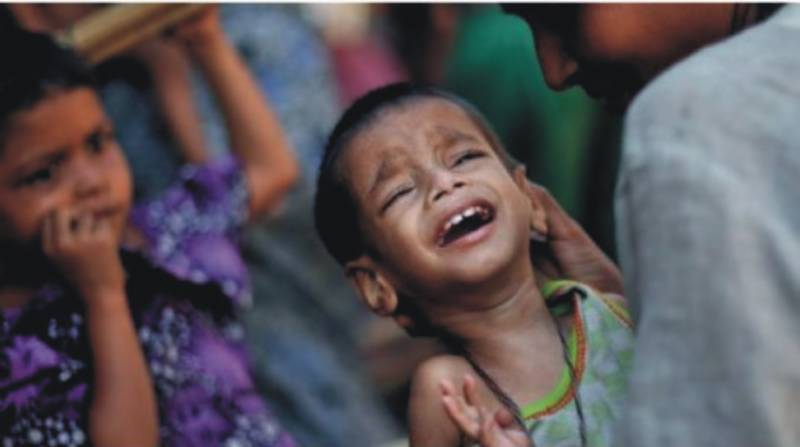The on-going Rohingya issue is attaining crucial importance with every passing day and has exploded into a sensitive humanitarian crisis. That the Rohingyas are “one of the world’s most persecuted minorities”, have been denied citizenship in a country which they claim to belong to, are segregated and discriminated by authorities in the name of security and have lately assumed the sorry credit of being ‘boat people’ are shocking details. The Rohingyas, being predominantly Muslims, are indigenous to the Rakhine state of Burma. Officially, Rohingyas aren’t a recognized ethnic group in Burma but constitute around 5% of the population and are close to forming a majority in the Rakhine state. The swelling number of Rohingyas in Rakhine has plunged the Buddhists into a gruesome paranoia of being demographically lessened. This is one of the several reasons which are well-founded enough to attribute sporadic anti-Rohingya communal violence to. The question, however, is why does a group feels threatened if it sees the minority status coming towards it in the long run? The answer is clear and simple: it’s the fear of being suppressed by a tyrant majority which makes the minority status a curse. If the Rohingyas surge in terms of population and dominate the Buddhists in Rakhine, they will press for recognition along with a substantial share in the political process. If that milestone is ever achieved, they might seek systematic vengeance for their long-standing grievances, thus embarking on the trend of cyclic violence, which is present in virtually every conflict in the world. So the safer course of action for Buddhist majority is to be the tyrant, push Rohingyas to the corner, so much that they are now fleeing Burma, amassing on crammed boats. These developments are a testimony to the hopeless state of governance in Burma, a country that has seen half a century of military rule.
The situation of Rohingya Muslims, who are stranded on the sea after having fled Burma for the fear of persecution, is despicable. They are starving for food, stand exposed to natural calamities, are dying miserable deaths and those who happen to be alive in such testing circumstances are golden eggs for human traffickers. Last month, Thai police discovered at least 30 bodies in an abandoned human trafficking camp close to the Thailand-Malaysia border region. The findings of Thai police claimed that the bodies were those of Rohingya Muslims fleeing Bangladesh and Burma and the people had apparently died of disease and hunger. The Rohingya eviction is also sensitive in its potential to deteriorate the physical health of men, women and children stranded on the boats in Andaman Sea. Women stand exposed to the use of rape and sexual harassment as instruments of torture whereas the children who’ll live on to become products of this crisis are likely to have their constructive abilities largely hampered. The Rohingya crisis is, therefore, not only a problem of the present moment that will buzz off by enforcing cosmetic measures. The effects of this crisis will trickle down for decades to come and whatever solutions are devised to alleviate human suffering in this particular case should be a combination of both urgent response and long-term planning.
The strife-hit Rohingya refugees might also become a gold mine of future recruits for religious extremist groups. Terrorist groups active in the regions of Middle East and South Asia on playing the religion card could garner widespread adherence to their parochial and violent ideology from the Rohingyas. Recently, a suspected Rohingya had been arrested in India for his alleged involvement in terrorist activities. It is believed that he received training in terrorism from members of the banned Tehreek-e-Taliban Pakistan. While this could equip India with another excuse to put the blame of increasing terrorism in South Asia on Pakistan, it might also restrain the future possibility of Rohingyas to be welcomed in neighboring South East Asian and South Asian countries. Although, the principle of non-refoulement is well grounded in the spirit of international refugee law, indifference and reluctance was witnessed on part of countries like Indonesia and Malaysia initially. In such a situation, if the Rohingya strength is in any manner appropriated by extremist groups, the borders of sympathetic countries will be closed on them.
Mian Nawaz Sharif, the Pakistani PM, has lately announced the aid of $ 5 million in food relief for the Rohingya refugees, which will be dispersed under the supervision of World Food Program. The PM has also called upon the UN and OIC to address the predicaments of Rohingya Muslims. Pakistan is an abode to around 0.2 million Rohingya refugees, who are sufficiently absorbed in society and possess Pakistani citizenships. As the stated foreign policy goals of Pakistan demand, the country must extend humanitarian assistance to assuage the suffering of Rohingya Muslims but this shouldn’t entail embracing more refugees without a coherent, well thought out and implementable action plan for their repatriation.







